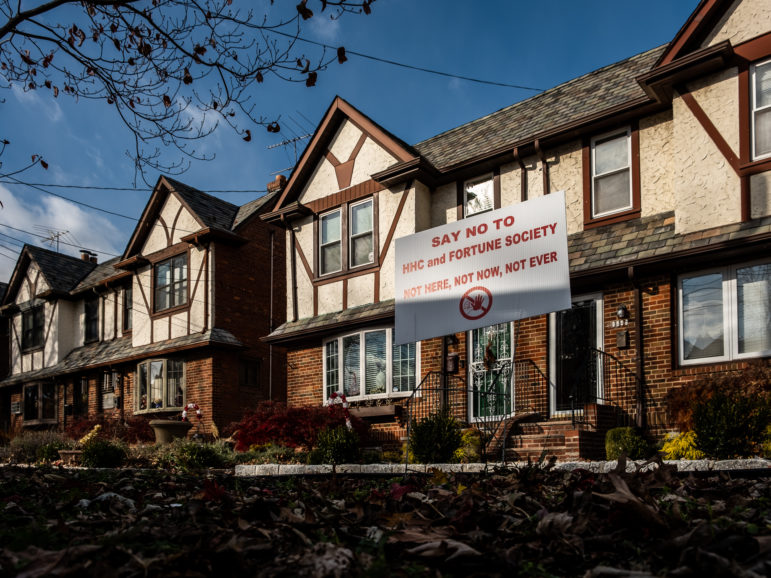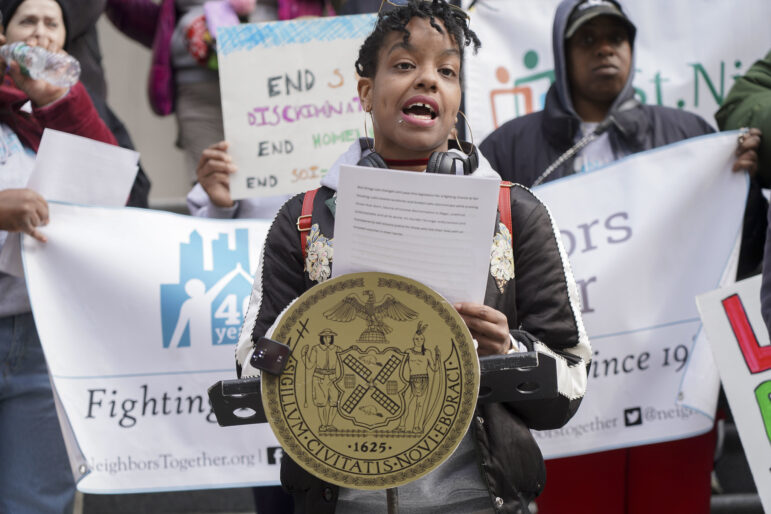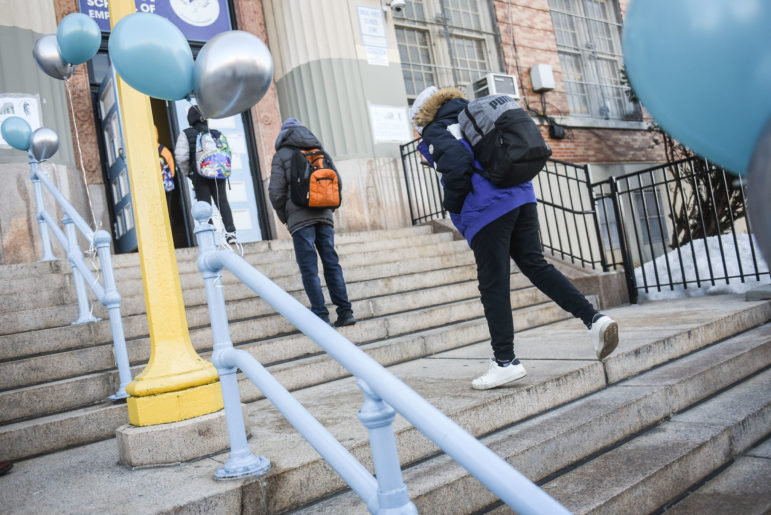
Photo by: Alex Robinson
Councilwoman Melissa Mark-Viverito addresses citizens who are participating in a project to let constituents vote on how to spend $1 million in capital funding to the district.
Budget delegates in Manhattan’s District 8 have discovered $1 million can only go so far.
The delegates have cut a list of more than 500 proposals down to a few dozen since November.
After dividing into committees, they whittled the ideas down by establishing the need, benefit, and feasibility of each. The proposals include requests to renovate a dog park, build a skate-park and provide laptops to schools.
The housing committee, which is the largest one in District 8, has submitted a total of seven proposals to Councilwoman Melissa Mark-Viverito’s office. Housing is one of the most important issues in the district, which is home to more than 30 housing projects.
Seeking broad benefits
Facilitators for District 8 were mainly from Community Voices Heard, a nonprofit organization based in East Harlem. They reminded budget delegates in their meetings that projects were meant to benefit the whole district. Ideas that apply widely will attract more votes and are likely to get funding, they said.
“This process is wider than you,” said Mo George, a facilitator for the housing committee, during a recent meeting. “This project isn’t just about your own housing complex. It’s about your district.” Budget delegates changed some of their proposals as a result.
An idea that requested funding for new recycling bins for Frederick Douglass Houses in the Upper West Side was changed to include all housing projects throughout the district.
“A lot of the projects are bundled and actually address the different parts of the district”, says Carmen Dixon, a facilitator for the housing committee. “We try to eliminate tension between areas by the way the projects are proposed.”
District 8 includes areas in the Upper West Side, East Harlem and Mott Haven in the South Bronx.
Dixon says she is confident that whatever initiatives are eventually chosen, they will benefit the community.
“No one has come in with their own agenda and pushed that agenda to the fullest. They’ve definitely been willing to go out and see what other neighborhoods need beyond their own,” says Dixon.
Building constituencies
Budget delegates on the housing committee were also concerned that if they had too many proposals in one neighborhood, they might split their vote.
“If you have too much in the pot, you might end up losing, instead of gaining something,” says Agnes Rivera, a budget delegate from East Harlem.
One of the more elaborate proposals submitted is for a greenhouse in Mott Haven that would accommodate a youth-run farmer’s market.
This idea was originally proposed as just a youth-run farmer’s market. When budget delegates realized the farmer’s market would not fall under capital spending, facilitators prompted them to re-frame the idea. The proposal came to include a greenhouse in order to add an infrastructure component.
Other requests for funding include playground renovations, fixing potholes and even a designated barbecue area at Millbrook Houses in Mott Haven.
Mark-Viverito’s office now has the job of meeting with city agencies to figure out the cost of each proposal. There will then be a district-wide vote in March.
The process has certainly encountered obstacles. “This is a pilot project. There are challenges and we’re learning as we go how to approve the process for the future,” says Joe Taranto, deputy chief-of-staff for Mark-Viverito.
Taranto hoped to know the price of each proposal by the second round of neighborhood assemblies, but did not receive the estimates in time. As a result, residents might see projects at meeting that may end up costing too much in the end.
City agencies have been slow to give estimates for ambitious projects such the greenhouse. This is because they have not seen these types of projects before, Taranto says.
“It takes a little bit more thinking on their part to come up with the right estimate that would take care of the project,” he says.
Budget delegates are going to meet again once the estimates are all received in order to determine if any of the proposals should be axed or adjusted before the vote. Taranto says delegates would be able to pay for expensive projects in multiple stages–in other words, split the project in half and propose the second half for next year’s budget.
Of the estimates that have come in, many of the proposals are around $200,000 or less, meaning that at least five projects will fit into the $1 million.
“Based on the priorities, you go down the list as far as you can, as far as $1 million dollars will take you,” says Mark-Viverito.
The councilmember said she would consider funding more projects if she gets additional money in her discretionary budget. City Council Speaker Christine Quinn will allocate discretionary funds once the city budget is finalized in the summer.
Mark-Viverito says she received $4 million in discretionary funds last year.
After the participatory budgeting process culminates in March with district-wide votes, Mark-Viverito and her colleagues plan to hold a briefing with other councilmembers to display the results of the process. “I believe strongly that we are going to see growth in the number of members who are doing it,” she says.








